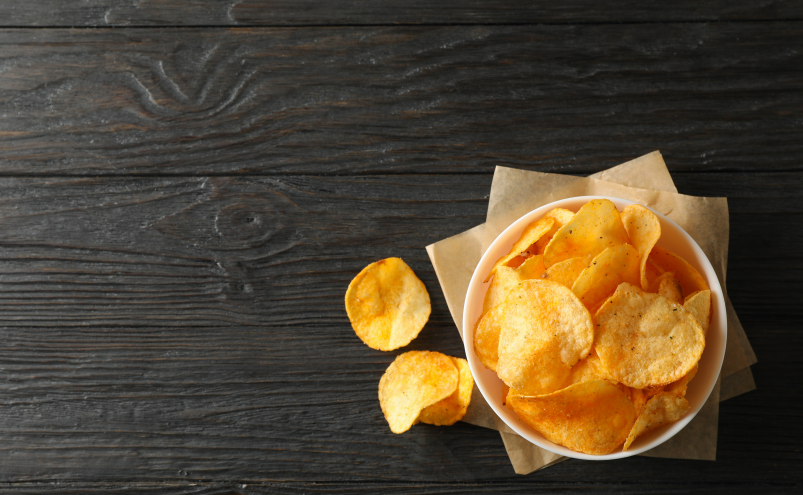Evening and late-night snacking has gotten a bad rap through the years. Most people would label this behavior as a bad habit. It's not uncommon to hear diet rules such as "no snacking or eating after 6 pm". True, late-night snacking often involves less nutritious foods, especially those higher in sugar and fat. It's commonly associated with weight gain, lack of portion control, distracted and mindless eating, and commonly attributed to low willpower. Eating too close to bedtime can even cause problems with heartburn. So what if you find yourself hungry in the middle of the night? Should you ignore true hunger signals at all costs if they show up late at night? Should you honor them and then feel guilty that you just sabotaged your weight or health? Thankfully, there's more to the picture than these two extremes. Learn to manage cravings or hunger that appear late at night in a healthy, balanced way. Yes, it is possible. How?
A Balanced View of Late-night Eating
Many believe that late night eating equals weight gain. For this reason, many swear off food after 6 or 7 pm. The truth is, however, the problem lies not so much in the time of day but rather in what and how much has been eaten and how much physical activity has been done throughout the day.
It's important to look at the context of the entire day. Many factors contribute to weight gain so it's important to have a balanced view of all the factors involved. Someone may avoid eating at all after 6 pm but still overeat early in the day and, thus, gain weight.
A balanced view of late-night eating may help manage some of the negative feelings (such as guilt or shame) that plague those who end up giving in and eating something later in the day. Nighttime snacking doesn't automatically identify a person as someone who lacks willpower. It may just be that they did not consume enough calories earlier in the day.
Overcoming Nighttime Eating Hurdles
1. Look at the big picture - If you tend to feel true hunger signals late at night, try focusing on being more consistent with balanced meals and snacks throughout the day (a balanced amount of carbs, protein and fat). Consequently, you may find that you need little to no food later at night.
2. Adjust attitude - Changing your attitude about nighttime eating can help you develop a healthier relationship with food. Labeling nighttime eating with dichotomous terms like "good" or "bad" leads to negative, discouraging feelings that can actually lead to emotional overeating. In other words, it's not necessarily the night time eating that can lead to the weight gain of overeating but the negativity attached to it. Late-night eating does not necessarily have to be a bad thing. It really depends how we carry it out.
3. Practice mindfulness - If one must eat late at night, be mindful. Pay attention to what and why you are choosing to eat. If there is an emotion, try to handle it with an alternative activity other than eating (such as journaling, listening to music, or a different hobby). If the reason is truly physiological (true hunger), be mindful still about the food and how it is satisfying your hunger. Truly enjoy it! Mindfulness makes it easier to identify when it is time to stop eating, when we have reached a point of satisfaction and are comfortably full. A barrier to mindfulness is a distraction. Swiping through instagram, watching a movie, or other activities can distract us from paying attention to how much we eat and whether we are full or not.
4. Assess hunger - After taking a few bites, assess your hunger. Pay attention to how you feel and how close you are getting to satisfying your hunger. Then stop before being stuffed.
5. Balance macronutrients - Regardless of what time of day we consume a meal or snack, it should contain a balanced amount of the three macronutrients - protein, fat, and carbohydrates. Adequate protein and fiber will help lead to greater feelings of satiety. It can be as simple as a high protein Greek yogurt with berries, low fat cheese with nuts, or a banana with a nut butter. With all these tips in mind, you are more well-equipped to handle a late-night snacking situation. While you don't have to beat yourself up for needing to eat something later in the day, it is still important to be mindful of how to do so in a healthy, balanced manner.

























